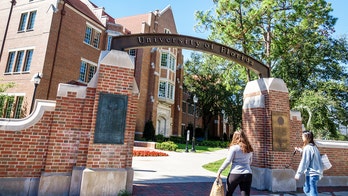The International Committee (IOC) has demanded that Utah officials drop an FBI probe into an alleged coverup involving the World Anti-Doping Agency (WADA) and Chinese swimmers, a condition set for Salt Lake City's hosting of the 2034 Winter Games.
The International Olympic Committee (IOC) has thrown a wrench in Salt Lake City's bid to host the 2034 Winter Games, demanding that Utah officials terminate an ongoing FBI investigation into an alleged doping coverup involving the World Anti-Doping Agency (WADA) and Chinese swimmers.
This condition has sparked controversy, with concerns raised about the potential impact on the anti-doping landscape and the fairness of international competition.

Salt Lake City's Winter Games Bid Hinges on Ending FBI Investigation into Doping Coverup
Months before the Tokyo Olympics, it was revealed that 23 Chinese swimmers had tested positive for a banned heart medication. Despite the positive tests, WADA allowed the swimmers to compete, and five of them went on to win medals, including two gold. Eleven of these swimmers are also set to compete in the upcoming Paris Olympics.
WADA's decision to clear itself of any wrongdoing in handling the case has raised questions about its impartiality and effectiveness in combating doping. A special prosecutor appointed by the agency concluded that WADA's decision not to punish the Chinese athletes was "reasonable" and didn't show favoritism, a finding that has been met with skepticism.

Salt Lake City's Winter Games Bid Hinges on Ending FBI Investigation into Doping Coverup
The FBI investigation into the matter has become a major concern for the IOC, which has added a clause in the contract demanding the termination of the probe. Utah Governor Spencer Cox has stated that this condition was essential for securing the Games, adding that the U.S. risks losing them if it does not respect WADA's "supreme authority."
The FBI investigation can be conducted under the Rodchenkov Act, named after the whistleblower of Russia's doping scandal at the 2014 Sochi Winter Games. The law allows for the investigation of doping offenses that occur outside of the U.S. However, some officials and athletes have expressed concerns that the anti-conspiracy law could allow the U.S. to arrest or subpoena Olympic visitors, deterring them from attending the Games.

Salt Lake City's Winter Games Bid Hinges on Ending FBI Investigation into Doping Coverup
WADA President Witold Banka has defended the agency's handling of the case and accused those making allegations against it of defamation. He has stated that WADA will consult with outside legal counsel to determine appropriate actions against those making false and potentially defamatory statements.
The United States Olympic and Paralympic Committee (USOPC) has acknowledged that some officials and athletes from other countries have expressed concerns about the anti-conspiracy law. USOPC chair Gene Sykes has stated that the USOPC will work with Congress to address these concerns and ensure that the Games are fair and accessible to all.
Olympic legend Dara Torres has expressed her loss of confidence in WADA, highlighting the need for more intricate testing to stay ahead of dopers. She has praised Travis Tygart, the head of the US Anti-Doping Agency, for his efforts to promote a clean sporting environment.
The Associated Press has contributed to this report.










